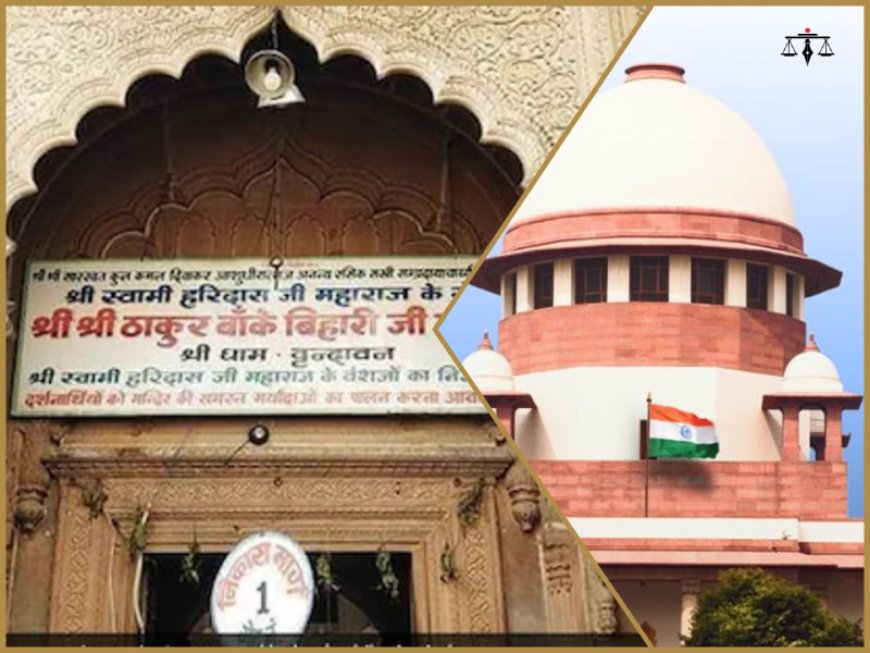Supreme Court Pulls up Uttar Pradesh Government for “Hijacking” Banke Bihari Temple Dispute
Senior advocate Kapil Sibal, representing petitioner Devendra Nath Gooswami, argued that the state had received ₹300 crore for the project without involving the temple’s traditional caretakers. “How can an order in another petition direct the earnings of a private temple to be handed over to the state?” he questioned.

The Supreme Court on Tuesday strongly criticised the Uttar Pradesh government for intervening in a private dispute over the management of the Shri Banke Bihari temple in Vrindavan, warning that such interference undermines the rule of law.
A bench comprising Justices B V Nagarathna and Satish Chandra Sharma questioned the state’s role in the ongoing litigation between private parties. “In what capacity has the state entered the dispute? If states start interfering in private litigation, it will lead to a breakdown of the rule of law. You can’t hijack the litigation,” the bench remarked.
The comments came during a hearing on a plea seeking modification of the court’s earlier order allowing the UP government’s proposed redevelopment plan for the Banke Bihari temple.
Senior advocate Kapil Sibal, representing petitioner Devendra Nath Gooswami, argued that the state had received ₹300 crore for the project without involving the temple’s traditional caretakers. “How can an order in another petition direct the earnings of a private temple to be handed over to the state?” he questioned.
The state government’s counsel responded that a trust had been formed to manage the temple and oversee redevelopment, clarifying that funds would be managed by the trust—not directly by the government—under a newly enacted ordinance.
The court directed the state to share a copy of the ordinance with the petitioner and instructed the Principal Secretary concerned to file an affidavit by July 29.
Previously, on May 15, the court had approved the state’s plan to develop a corridor around the temple for devotees, permitting the use of temple funds to acquire 5 acres of surrounding land for amenities such as parking, toilets, and security.
However, Gooswami—who claims to be a direct descendant of temple founder Swami Hari Das Goswami and part of the temple’s management for over 500 years—filed a plea on May 19 opposing the redevelopment. He argued that the project, if carried out without consultation with traditional caretakers, could disrupt the temple’s religious and cultural fabric and lead to administrative chaos.
The Supreme Court’s May 15 decision modified a previous Allahabad High Court order from November 2023, which had accepted the redevelopment plan but barred the use of temple funds by the state.







